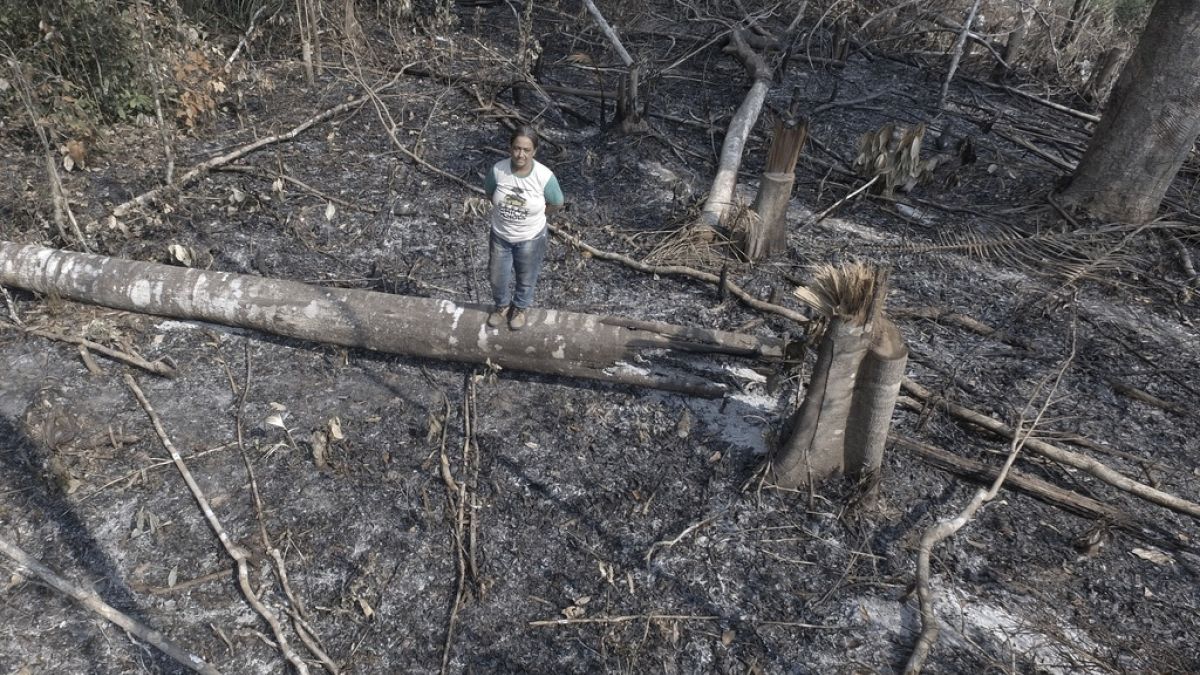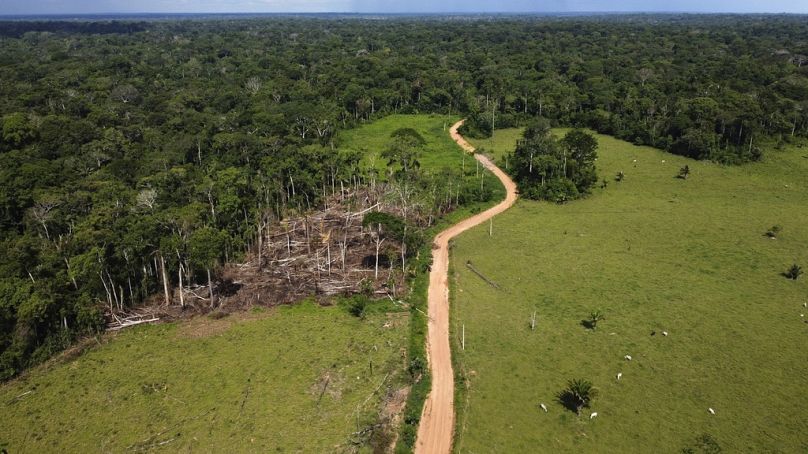Brazil made €42 billion from exports of products from its forests in 2023 alone.
The European Union is facing pressure from Brazil to delay implementing new regulations into its deforestation law.
The EU is planning to put the rules in place on 30 December this year - but Brazilian authorities say it would harm their exports.
The EU, however, wants to press ahead with the law - or something similar - in an effort to prevent European consumers from contributing to global deforestation.
In a letter sent to the European Commission, the Brazilian government says it is concerned that the law, which would see imported products linked to the destruction of the world’s forests banned outright, could affect almost one third of Brazil’s exports to the EU.
It will likely be an uphill struggle for the South American nation, though.
The law was already passed back in 2022 by the European Parliament and was adopted in June 2023 - a timeframe which allowed companies 18 months to adapt.
The law applies to a wide range of products, including soy, beef, coffee, palm oil, rubber, cocoa, wood and its derivatives, like leather and furniture.
Why are Brazilian authorities asking the EU to delay its deforestation laws?
“Brazil is one of the main suppliers to the EU of most of the products covered by the legislation, which correspond to more than 30 per cent of our exports to the community bloc,” the letter, signed by the Ministers of Agriculture and Foreign Affairs, read.
“In order to avoid impact on our trade relations, we request that the EU not implement the EUDR (EU Deforestation-free Regulation) at the end of 2024 and urgently reassess its approach to the issue,” the ministers added.
Brazil’s exports of products from their forests reached $46.3 billion (€42bn) in 2023. That’s according to data from the country’s Ministry of Development, Industry and Foreign Trade data, who say the EUDR could affect some $15 billion (€13.6) in exports if it does come into force.
In the letter, the ministers did not pull any punches, complaining that the EUDR discriminates against countries with forest resources and forces higher costs for producers and exporters.
“We consider the EUDR to be a unilateral and punitive instrument that ignores national laws on combating deforestation,” the letter went on.
In response, EU officials have admitted that they are potentially considering either a delay to the implementation or, alternatively, a simplification of the rules.
Representatives have so far declined to comment on Brazil’s letter, but confirmed they would reply “in due course”, according to the Reuters news agency.
‘It is up to Brazil to ban deforestation’
A number of European officials have spoken out on Brazil’s complaint.
That includes Pascal Canfin, the MEP who was former chair of the European parliament’s environment committee. He has called on Brazil to speed up moves to ban deforestation - but to do it themselves, rather than relying on the EU.
“Brazil finds the deforestation regulation problematic since it covers one-third of its exports linked to deforestation. It is up to Brazil to ban deforestation, not the EU to change its rules,” he wrote in a post on X - formerly Twitter.
It’s not the first time the EU has come under fire from its trading partners.
In June, the US sent a letter to the bloc, saying the EUDR presented “critical challenges” to American industries, including their timber, pulp and paper producers.
Since the EUDR was announced in 2021, Brussels has faced frequent demands from a number of its partners to revise or delay the legislation.
Many of them are unhappy with the bloc’s system of grading countries according to EU analysis, judging whether they have ‘high’, ‘standard’ or ‘low’ risk deforestation.
As well as the US, diplomats from countries across Latin America and south-east Asia have criticised these criteria.
As leading exporters of commodities like coffee and palm oil to the EU, they have criticised the ranking system as a “political instrument”, which they claim allows the commission to pick and choose which countries have ‘special’ access to the European market.
Thanks, in part, to this push back, the EU has delayed the start date of the benchmarking system, and has instead categorised all countries as “standard risk” - for now, at least.
The implementation row comes in the wake of more issues surrounding Brazil and the EU
The law has long been a sticking point in EU trade talks with Brazil and its wider partners across the South American Mercosur trade bloc.
Last week, EU and South American negotiators met in the capital, Brasilia, last week.
Despite the issues at hand, they said they had made “significant progress” on contentious issues which have been holding up a “long-overdue” agreement between the EU and Mercosur group, according to Reuters.
That free trade deal is technically separate from the EUDR, but Brazilian officials have made clear their fears that the law could potentially be used to reduce the country’s quota of agricultural products to the EU.
Instead, they want to seek some form of compensation if the European law is implemented.
















